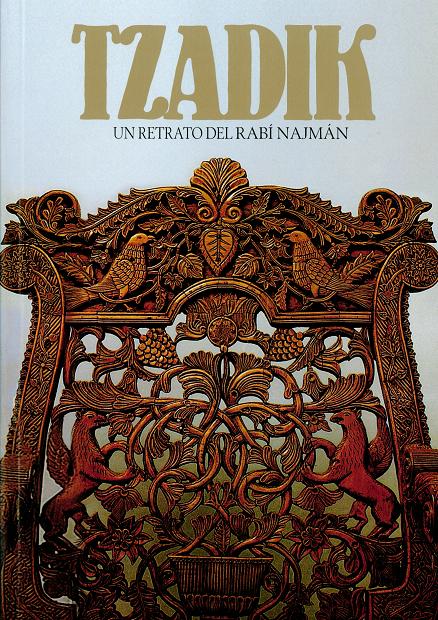Moshe received the Torah at Sinai and transmitted it to Joshua; Joshua to the Elders; the Elders to the Prophets; and the Prophets transmitted it to the Members of the Great Assembly (Avot 1:1). The entire body of Judaic Law, written and oral, came through Moshe, who received it directly from God. God did not give it directly to the Jews. Why not?
The Talmud relates: The Emperor told Rabbi Yehoshua ben Chananya that he wanted to see God. Rabbi Yehoshua took him outside and told him to look at the sun. “This is not possible!” exclaimed the Emperor, to which Rabbi Yehoshua answered: “If you cannot even look upon the servant of God, how can you expect to look at God Himself?!” (Chullin 59b).
With this in mind, we can attempt to examine the role of the Tzaddik. In Judaism, the Tzaddik is a leader, a guiding light to his followers. In general, people have a need for leadership. The average person is for the most part unsure of his responsibility in life and how to go about fulfilling it. He must learn this from the Tzaddik. Therefore, what is needed is true leadership; truly knowledgeable people with an understanding of what someone else’s capabilities are and what is demanded and required of that individual.
Torah is the instrument which conveys God’s Infinite Wisdom to man. Who among us can honestly say that he is wise enough to look at that medium and grasp what is required of him? The Talmud, Midrash and Shulchan Arukh stress the importance of receiving from a teacher, so that one’s understanding of Torah be clear. Thus, a teacher or rabbi has to have received from his teacher, and so on, back to Moshe Rabeinu. To look directly into the Torah and say “I know and understand,” is to say “I don’t know and never will, because I consider myself capable enough to glance at God by myself.” As the Talmud teaches: Even one who has studied, as long as he has not received from a Talmid Chakham, a qualified teacher, is still considered an ignoramus (Berakhot 47a). And: How foolish are those who stand up for the Torah Scroll, but do not stand up for the Sage (Makot 22b). The Torah can actually mislead a person who follows it, without the benefits of true guidance and leadership.
This does not mean that there are no exceptions to the rule. The Talmud speaks of those unique individuals who did succeed in Torah study, though they did not follow the prescribed approach to study outlined by our Sages (see Avodah Zarah 19a). But these singular human beings are very few and far between. One must receive at least the basics of learning from a rabbi, whose task it is to see that the material taught conveys its true meaning (Bava Batra 21a,b).
So, why didn’t God give the entire body of Judaic Law directly to the Jews? Because the Torah’s light would have been too blinding. Being an extension of nothing less than God’s Infinite Wisdom, it is too great for the average person to receive directly. To be able to gaze upon this light, we need “sunglasses”; we need some type of filter which processes the light and distributes it in manageable quantities. This filter is the Tzaddik.
So, “Moshe received the Torah… He transmitted it to Joshua, and Joshua transmitted it….” Maimonides, in his introduction to the Yad HaChazakah, lists the nation’s leaders in each generation until the redaction of the Talmud. The Ravad (Rabbi Avraham ben Dior), in Seder HaKabbalah, lists the leaders in each generation up until his own (c. 1000). And, all these leaders and teachers were followed by others. Throughout the generations the Tzaddikim have led the Jews by transmitting their knowledge of God to us. They’ve taught us what our responsibilities are in life and how to go about fulfilling them. They’ve also shown us how to turn to God and how to derive pleasure from His great light.
The Tzaddik is also an intermediary. He is an agent between God and ourselves. Yet, he is not an intermediary at all. God forbid that anyone should think he needs a medium between the Almighty and himself; not from his side, and certainly not from God’s. Rather, because the Tzaddik is one who has conquered the physicality of this world and entered the spiritual realm, he serves as an agent and a catalyst for bringing spirituality to this world. Having attained the wisdom and understanding necessary for serving God in a true and proper manner, the Tzaddik serves Him by bringing His will to mankind and by getting people to recognize God in all aspects of their lives. The average person cannot perceive God’s will, and therefore has to turn to someone who can. Thus, in this sense, the Tzaddik is an intermediary.
”Moshe took the Tent…whoever sought God would go to the Tent of Meeting…” (Exodus 33:7). Rabeinu Bechaya (1263-1340) asks: Shouldn’t the verse have said, “whoever sought Moshe would go to the Tent of Meeting”? Thus we see that Moshe is called in God’s Name. Yaakov was also called in God’s Name (Genesis 33:20; see Megillah 18a). Mashiach is also called in God’s Name… For whoever is truly attached to something is called by the name of that thing (Rabeinu Bechaya, Ki Tisa). Furthermore, this teaches us that one cannot go to God – be made aware of God – except through the Tzaddik (Leket Amarim p. 145ff).


3 comments
The exception for studying alone is intended for the most hidden part of the Torah – Merkabah,
“if he is a chacham who can understand on his own” (Hagigah 11b)”
?? ??? ??? ????? ?????